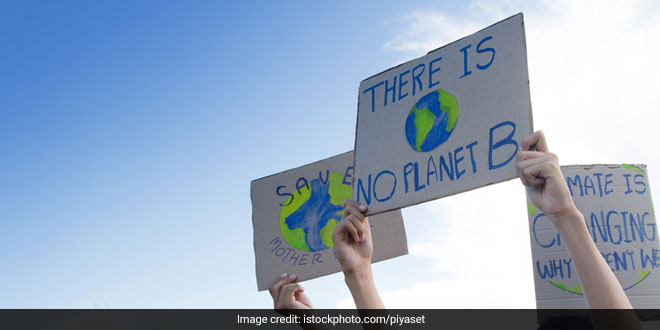Washington: According to the researchers at the University of Exeter, tackling the climate crisis can only be achieved by “placing people at the heart of climate action”, say researchers. The research team, led by the University of Exeter, warned against relying solely on breakthroughs in climate science and technology. Instead, they say social science can help engage people and societies, and ensure a green transition that is both effective and promotes other goals such as wellbeing, equity, and fairness. The paper is the first to be published by the new Advancing Capacity for Climate and Environment Social Science (ACCESS) programme.
Also Read: 9.06 Crore Indians May Go Hungry by 2030 Due To Climate Change: Study
“To meet our climate goals, we need both profound societal change and continued technical improvements,” said ACCESS team leader Professor Patrick Devine-Wright, from the University of Exeter.
This dual approach can improve people’s quality of life, reduce emissions and ensure thriving economies and ecosystems. If people are at the heart of climate action, then understanding and tackling climate change cannot be done by engineers or natural scientists alone. All disciplines need to work together – not least a range of social sciences including political science, sociology, geography, and psychology – to find solutions in ways that achieve wider societal goals.
Professor Devine-Wright, of Exeter’s Department of Geography and the Global Systems Institute, was a Lead Author on the recent report from Intergovernmental Panel on Climate Change (IPCC) Working Group III.
This was part of the IPCC’s sixth assessment cycle and – for the first time – the latest report included a dedicated chapter on-demand and social aspects of mitigation, and a cross-chapter analysis on equity and sustainable development.
Also Read: What Is IPCC And Why Are Its Reports On Climate Change Significant?
Professor Devine-Wright said this progress should now continue, with the aim of developing a more visible, responsive, and interdisciplinary social science that engages with people and is valued in its diversity by decision-makers from government, industry, civil society, and law.
The paper concludes: “Given that all climate solutions will involve people in one way or another, the social sciences have a vital role to play.”
Published in the journal PLOS CLIMATE the paper is entitled: “Placing people at the heart of climate action.”
ACCESS is a new five-year project funded by the Economic and Social Research Council that aims to provide leadership on the social science contribution to tackling and solving a range of environmental problems. It will build leadership capacity in a new cohort of early career researchers and collaborate with stakeholders to ensure social science evidence informs decision-making.
Also Read: India Could Become Carbon Neutral Before Its 2070 Goal, IRENA Chief Says
(Except for the headline, this story has not been edited by NDTV staff and is published from a syndicated feed.)
NDTV – Dettol have been working towards a clean and healthy India since 2014 via the Banega Swachh India initiative, which is helmed by Campaign Ambassador Amitabh Bachchan. The campaign aims to highlight the inter-dependency of humans and the environment, and of humans on one another with the focus on One Health, One Planet, One Future – Leaving No One Behind. It stresses on the need to take care of, and consider, everyone’s health in India – especially vulnerable communities – the LGBTQ population, indigenous people, India’s different tribes, ethnic and linguistic minorities, people with disabilities, migrants, geographically remote populations, gender and sexual minorities. In wake of the current COVID-19 pandemic, the need for WASH (Water, Sanitation and Hygiene) is reaffirmed as handwashing is one of the ways to prevent Coronavirus infection and other diseases. The campaign will continue to raise awareness on the same along with focussing on the importance of nutrition and healthcare for women and children, fight malnutrition, mental wellbeing, self care, science and health, adolescent health & gender awareness. Along with the health of people, the campaign has realised the need to also take care of the health of the eco-system. Our environment is fragile due to human activity, which is not only over-exploiting available resources, but also generating immense pollution as a result of using and extracting those resources. The imbalance has also led to immense biodiversity loss that has caused one of the biggest threats to human survival – climate change. It has now been described as a “code red for humanity.” The campaign will continue to cover issues like air pollution, waste management, plastic ban, manual scavenging and sanitation workers and menstrual hygiene. Banega Swasth India will also be taking forward the dream of Swasth Bharat, the campaign feels that only a Swachh or clean India where toilets are used and open defecation free (ODF) status achieved as part of the Swachh Bharat Abhiyan launched by Prime Minister Narendra Modi in 2014, can eradicate diseases like diahorrea and the country can become a Swasth or healthy India.
[corona_data_new]





























